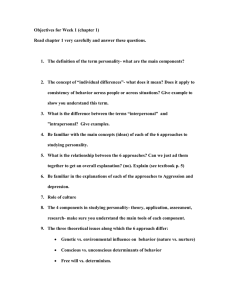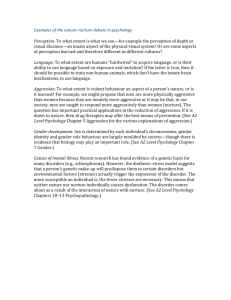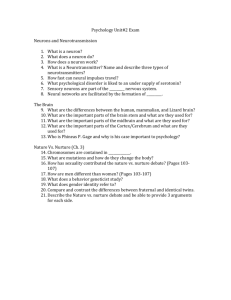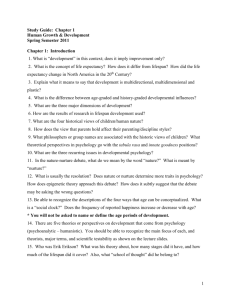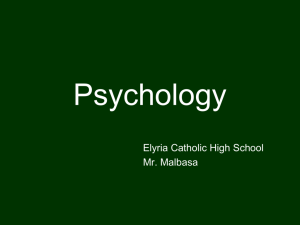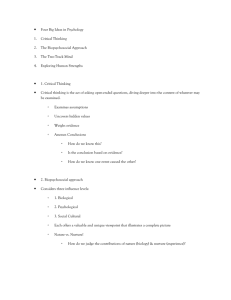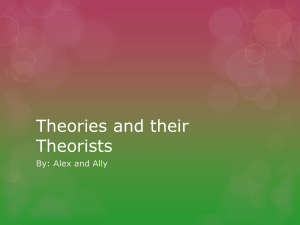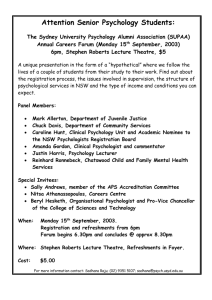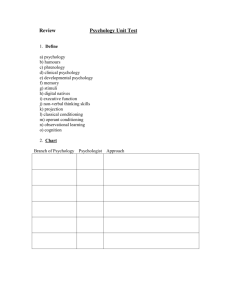NAME: Review Questions for Chapter 1: Psychology`s Roots, Big
advertisement
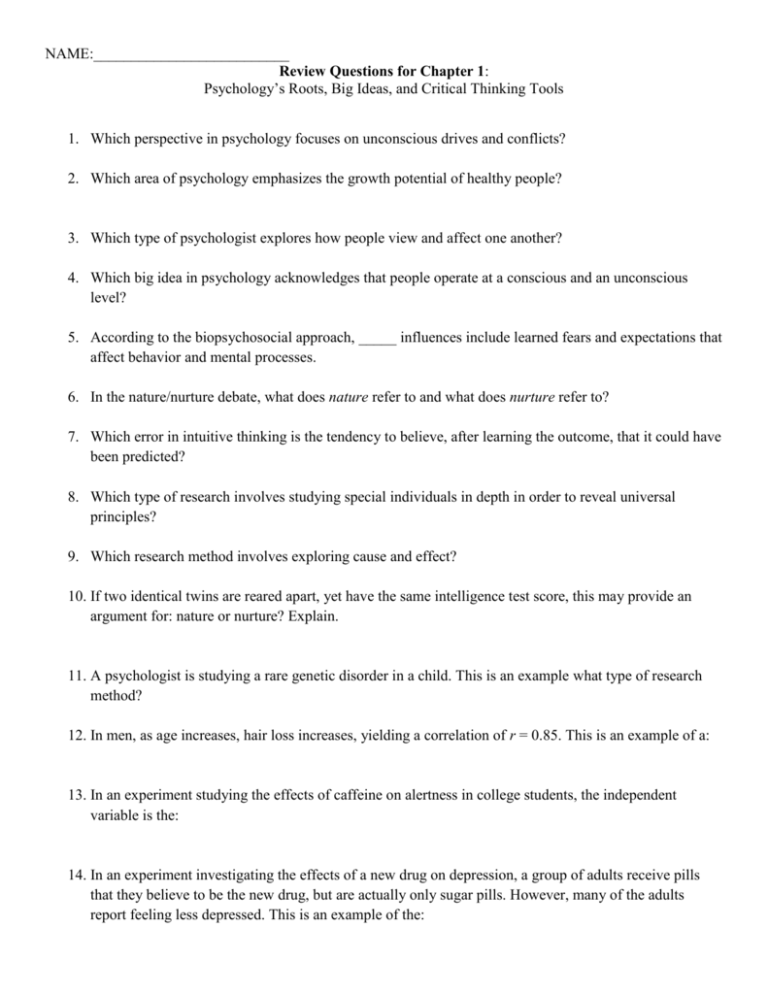
NAME:__________________________ Review Questions for Chapter 1: Psychology’s Roots, Big Ideas, and Critical Thinking Tools 1. Which perspective in psychology focuses on unconscious drives and conflicts? 2. Which area of psychology emphasizes the growth potential of healthy people? 3. Which type of psychologist explores how people view and affect one another? 4. Which big idea in psychology acknowledges that people operate at a conscious and an unconscious level? 5. According to the biopsychosocial approach, _____ influences include learned fears and expectations that affect behavior and mental processes. 6. In the nature/nurture debate, what does nature refer to and what does nurture refer to? 7. Which error in intuitive thinking is the tendency to believe, after learning the outcome, that it could have been predicted? 8. Which type of research involves studying special individuals in depth in order to reveal universal principles? 9. Which research method involves exploring cause and effect? 10. If two identical twins are reared apart, yet have the same intelligence test score, this may provide an argument for: nature or nurture? Explain. 11. A psychologist is studying a rare genetic disorder in a child. This is an example what type of research method? 12. In men, as age increases, hair loss increases, yielding a correlation of r = 0.85. This is an example of a: 13. In an experiment studying the effects of caffeine on alertness in college students, the independent variable is the: 14. In an experiment investigating the effects of a new drug on depression, a group of adults receive pills that they believe to be the new drug, but are actually only sugar pills. However, many of the adults report feeling less depressed. This is an example of the:
